4v291o
Pure pulp fiction, and I love it for that, even if it gets pretty eye-roll-y when you get past the broad archetypal strokes and try to actually think about character psychology or whatever. Scratches the same itch that, say, a Terry Brooks novel used to, in the sense that it's just nice to vibe out in a faux-medieval high fantasy, even if most of the specifics are somewhere along the spectrum from anonymous (wizards, crystals, knights) to groan-worthy (Peter MacNicol's protagonist). Without question, the best specific feature of the movie is the Phil Tippett-animated dragon, which absolutely rules as not just a technical flex but also a genuinely menacing narrative presence; the amount of grisly onscreen violence that the Disney overlords allowed this dragon to enact in their film is a little shocking and makes me sad that, a few years later, they weren't as permissive with the original, scary cut of The Black Cauldron. If someone made me CEO of Disney, of course the first thing I'd do is greenlight Fantasia 2030, but the second thing is I'd decree that they put the violent deaths and partial nudity in Disney family films again. Under my iron fist, we will bring the "Parental Guidance" back to the PG rating!
]]>
I was considering giving this the same star rating as I gave the new Wes Anderson film, just to be funny, but then the movie hits its climax thirty minutes before it ends, and on principle, I just can't condone that. A lot of this is sublimely silly, probably nothing more so than the way it uses the typical "scary Middle East music" tropes to score Nicolas Cage walking through NYC and LA. It's also a deeply reactionary movie that captures the residual normie phobia of punk culture and pornography (weirdly conflated here?), and it's not too big of a stretch to imagine how the same anxieties that undergird this movie would spill over into the rabid post-9/11 racism of something like 24 or Taken, once a shot of Bush 2 washed away the '90s nihilism and replaced it with a thirst for a Reluctant Male Hero. All that aside, Joaquin Phoenix is very charming in this movie, though. It's always funny to return to films from his pre-I'm Still Here days when he had interest in playing conventionally winsome movie star roles.
]]>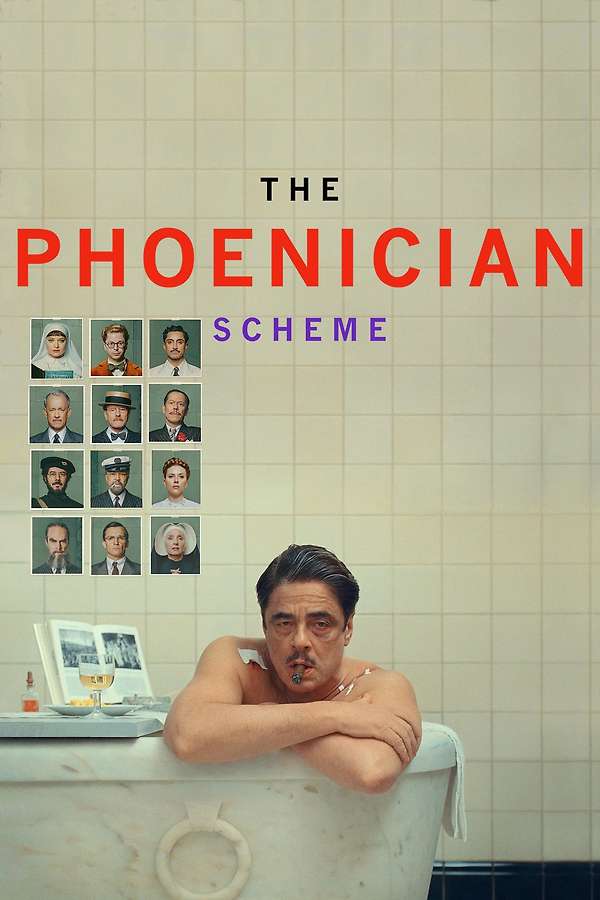
This movie is pretty funny--the hardest a Wes Anderson movie has leaned into jokes for jokes' sake in a long while, and some of them are surprising, e.g. a dude getting blown in half as a visual gag. Besides that, it's always a good time to luxuriate in Wes Anderson's textures. So I don't want to act like I completely disliked this. But for me at least, this was easily Anderson's weakest feature in a very long time. There are a lot of aesthetic moments that are lovely (the overhead bathroom credits, for example), but even at its most visually engaging, a lot of this feels a little like Wes on autopilot; the movie is significantly less formally fussy than the rest of his 2020s output and thereby also free of some of the big aesthetic swings that those other movies have made: no Asteroid City stop-motion alien, no Henry Sugar stagecraft, etc. That wouldn't matter as much to me if the narrative worked on a human level, and it does in fits and starts: the father/daughter dynamic introduced at the beginning is a good, if familiar note, but the rest of the movie is proportionally dominated by ittedly funny but ultimately one-note caricatures (I love the Brian Cranston/Tom Hanks all-American robber-baron industrialist duo, don't get me wrong) in a way that doesn't satisfyingly grow that core emotional dynamic, and it feels like the movie has to do an awful lot of yada-yada-ing in the last act to get us to the graceful but perhaps unearned final scene. And also, while I don't come to Anderson movies for politics, this movie sure isn't trying to assuage any concerns about his conservative affection for a colonized world, is it? Anyway, like I said, still basically a good time, and if all you're looking for out of Wes Anderson are terrific actors doing silly things in that Andersonian affect, you get plenty of that here, executed very well (it's inconceivable to me that Michael Cera has not been in a Wes Anderson movie before now). And maybe it's a sign of the health of Anderson's career that not all of his movies need to be pull-out-the-stops Statements. Still, this felt thin to me.
]]>
Wild, wild movie. I tend to find the moralizing and verbose prose of Charles Perrault's fairy tales to be a bit stuffy, but perhaps "Donkeyskin" is different. At any rate, Jacques Demy's Donkey Skin truly is different, with the moralizing mostly contained to "You shouldn't do incest" (harsh, but fair) and the descriptive elements of course converted into gloriously bright colors. I would love for more fantasy movies to look like this again--not that any fantasy movie (except maybe The Wizard of Oz) has ever looked quite like this, but there was an era in which bright visual splendor was part of the fantasy film experience, whereas for much of my adult life, fantasy films have lived in the shadow of Peter Jackson's more muted, detail-oriented approach. I love LOTR, of course, but as this movie gloriously displays, that's not the only way. I think the mildly arts-and-crafts aspects of the set design and costuming are important; a movie like Wicked has plenty of colors, but it's all smoothed out by CG post-production. Everything here feels slightly cobbled-together, which is exactly how a fairy tale should be. Also, speaking of The Wizard of Oz, I hope painting horses bright colors is, like, okay for the horses. I wouldn't trust any set design or costuming elements taken from The Wizard of Oz to be entirely safe, so fingers crossed that those horses came out of this unscathed.
]]>
These sorts of movies being pervy toward young women kind of comes with the territory, and to this movie's credit, there is a thematic reason (if only a threadbare one) for it here. But even then, there's definitely a "we have to show these boobs... for science" attitude here that is amusing but also a little gross, imo. I might feel better about it if any of the female characters had a coherent personality at all, but alas, we are dealing with a giallo. Be that as it may, the craft here is incredible, and the finale is wayyy tighter than these gialli tend to be. Some real edge-of-my-seat stuff. I also love the music, but mostly for how incongruous the '70s soft rock is with the rest of the film.
]]>
Probably the farthest outside my own personal realm of experience and worldview of any movie I've seen. In that regard, I feel like I'm missing something by not having the cultural/historical context to understand the full weight of the Malian mythology presented here. But on the other hand, one of my favorite things to do is read folklore or mythology from a culture completely foreign to what I know, and watching this movie has the same feeling. I do kind of wonder what a higher budget would have afforded this movie, effects-wise, but also, some of the power of this movie is undeniably tied to just how mundanely and matter-of-factly the film presents its supernatural elements, and more expensive effects would have probably compromised that. Anyway, cool movie. I should watch more movies from Mali.
]]>
I turned this on for Laura Dern, and then the opening credits told me that this was based on one of the great 20th-century short stories! At least part of the power of "Where Are You Going, Where Have You Been?" is its allegorical open-endedness, which Smooth Talk disregards almost entirely by grounding the story in such a specific '80s American milieu (shopping malls, etc.) and by having the movie's plot expand past both the beginning and the end of the text of the story. That expansion transforms the story from a work entirely about menace (masculine, spiritual, whatever) into a more generous exploration of adolescent coming-of-age and specifically what that coming-of-age means for a girl living within the frameworks of a patriarchal society. The menace is still there, of course--hard to honestly engage in young female sexuality without the shadow of masculine violence, and to that point, The Big Scene with Treat Williams, taken nearly verbatim from the original story, is very scary--but there's a lot more going on in the movie besides just that, and it's a credit to the very smart writing, direction, and the central Laura Dern performance that adding so much thematic ground actually enriches the text rather than muddling it. Great movie. It's a bit of a bummer that Joyce Chopra and Tom Cole did very little feature film work again, but at least Laura Dern got a great film career.
]]>
A solid baseball drama with an angry edge to it. There's not really a way to say this that's not embarrassing, but I simply had never considered the immigrant experience within the baseball farm system, nor what happens to immigrant baseball players who don't make the majors. The way this film defamiliarizes basic elements of white American culture (e.g. the "how do you want your eggs?" scene) as part of a larger questioning of the way that professional baseball instrumentalizes its minor-league players and specifically its Latin-American players kind of knocked me out. The writing maybe trades a bit too much in stock characters in the big picture, but the more detail-oriented it stays, the more dramatically impressive it becomes.
]]>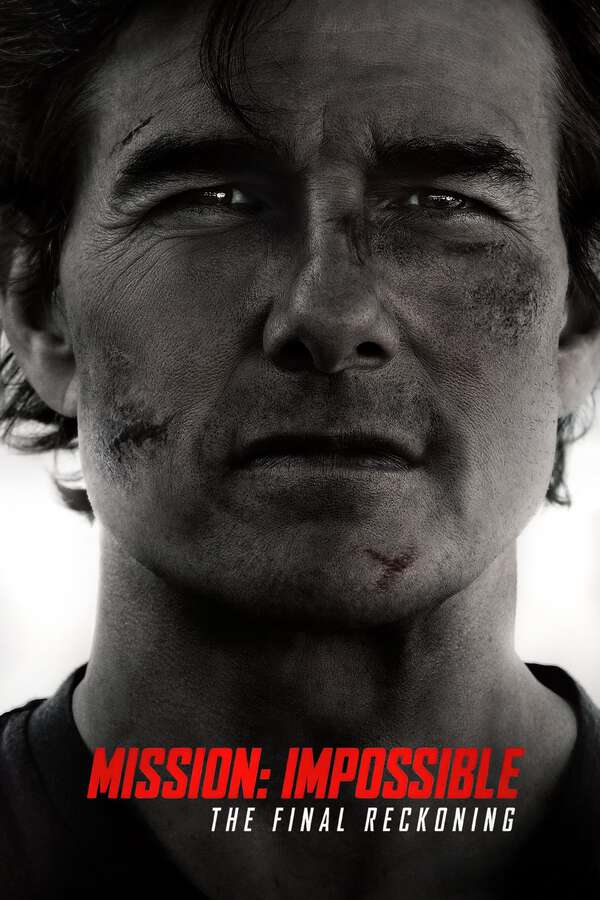
As basically everyone else has said, this takes its sweet time getting to the good stuff. I have absolutely zero interest in the series continuity, and this has a major case of ending-the-franchise-on-a-bloated-self-important-note-itis, even when it does get to the good stuff. The only callback that worked for me was Rolf Saxon's character (who is great). Plus, all the nuclear war material seems way grimmer and more upsetting than this series can reasonably handle, though it's not as if these movies haven't flirted with ideas like that in the past. But regardless, once they put Tom Cruise in the submarine, it gets pretty great, and by the time he's hanging upside-down from a biplane he's flying with his foot, all is forgiven. If this indeed is the last one, I'll miss that feeling, and for as much as I was rolling my eyes at the ending Ving Rhames monologue about how extrajudicial intelligence agencies make the world a kinder place, who am I kidding: I'd listen to another hour of monologues like that if it meant I got to see Tom Cruise do something dangerous again.
]]>
Very fun until Ray Liotta shows up, and then it's still very fun but in a scary way! I know that the "Manic Pixie Dream Girl" conceit hadn't really ossified at this point, but Melanie Griffith's character is an interesting inversion of what would become the typical "quirky girl helps lonely man find meaning in his life" trope; at first, this movie seems like it's going to go that direction, but then everything that happens actually ends up being about Griffith's character and her past instead of Jeff Daniels's. Anyway, the title is very apt. Amazing ending credits, too.
]]>
It was clear to me within half an hour of pressing play that I was watching a stone-cold masterpiece, and the only thing that dissuaded me from that in the next two hours was Francis McDormand's brief scene, which was both silly and a bit tacky, imo. Otherwise, wow. I'm hard-pressed to think of a better American movie about the Southern border and that border's place in the whole rotten American myth, and the way the writing weaves together the personal, historical, and political in order to build a thesis about the American colonial project is incredible. The earnestness of some of the big thematic and narrative swings might have seemed corny in other hands (and maybe becomes so in the McDormand scene), but the quiet mastery that Sayles brings to the production sticks the landing. As impressive as the direction and writing are, Sayles's editing is the real hero, which, more than anything else, stitches this tapestry together in a way that's not just credible but profound.
]]>
This works best when you get to the places where it feels like you're inside a lava lamp--any time the movie starts doing rear projection, you know you're about to get some of the sickest visuals ever. The movie isn't doing much for me otherwise, though. I mean, obviously Jane Fonda is hot, which is kind of the whole substance of the film outside of the visuals, but I dunno, that's not quite enough to hold my attention, sorry. I understand why it would be for someone else, though, because my god. That said, it's pretty depressing to read about Fonda's own experience making this movie while struggling with an eating disorder, which kind of takes the shine off the whole thing for me. Divorced from that, though, the film is winsome enough that it's hard to hate even when it's a bore, and between Duran Duran and Matmos, there's a surprisingly high concentration of band name origins here.
]]>
Incredible you-are-there filmmaking, though I'll it to being far more ignorant of the historical context than I feel like is probably necessary for this to have its full impact. I definitely had Wikipedia open a lot on my laptop while I was watching and as a result felt a little distanced from what was actually happening. Even so, it's kinda sad that the group featured here (the PFLOAG) was splintered and eventually crushed by a counterinsurgency soon after the release of this documentary, but that's any number of documents of the left wing. Being a socialist sometimes does on some level mean finding hope from often fragile victories within a vast landscape of depressing failures and repression.
]]>
I had two misconceptions about this film coming into it:
1. I had conflated the plot of this and A Matter of Life and Death in my mind, so I kept waiting on someone to die and have to argue his case in heaven.
2. I had heard it was a satire, and based on what I knew about Churchill's response to it, I was assuming that meant it was an acerbic, Dr. Strangelove-esque affair.
Needless to say, I was wrong on both counts and, especially regarding the second misconception, I spent a good deal of the movie thrown off by how kind and generous a movie it is. I'm still not entirely sure I'm ever going to convince myself to feel much for the upper echelons of British society, particularly military brass involved in the Boer War and WWI. It's not clear to me how much the movie wants me to care about these people, but I think I'm supposed to care a little bit. I did care about the German officer, who gets the most obvious plea for sympathy, and he ends up being the heart of the film for me--I actually wish we'd gotten more of a focus on him. I did like the movie overall: beautiful cinematography, interesting perspective on violence (a movie about violence that shows none onscreen), and honestly incredible old-age makeup. But I'm stuck in that weird position of having only liked a movie most people seem to love to pieces, and I think my negative tone is probably a result of me trying to navigate the gap between what I saw and what others I guess see.
]]>
It's fun seeing Ringo pop up in random art-house movies from the era. The best filmography of any Beatle? Anyway, this movie doesn't really work; it aims for Buñuel but doesn't have the discipline for that and mostly just ends up being zany, and not always in a particularly fun way. But sometimes it's fun! I enjoyed the auction scene, and the ending of the movie has a bluntness to it that I think works better than the somewhat convoluted buildup. Could have used way more Raquel Welch and Christopher Lee.
]]>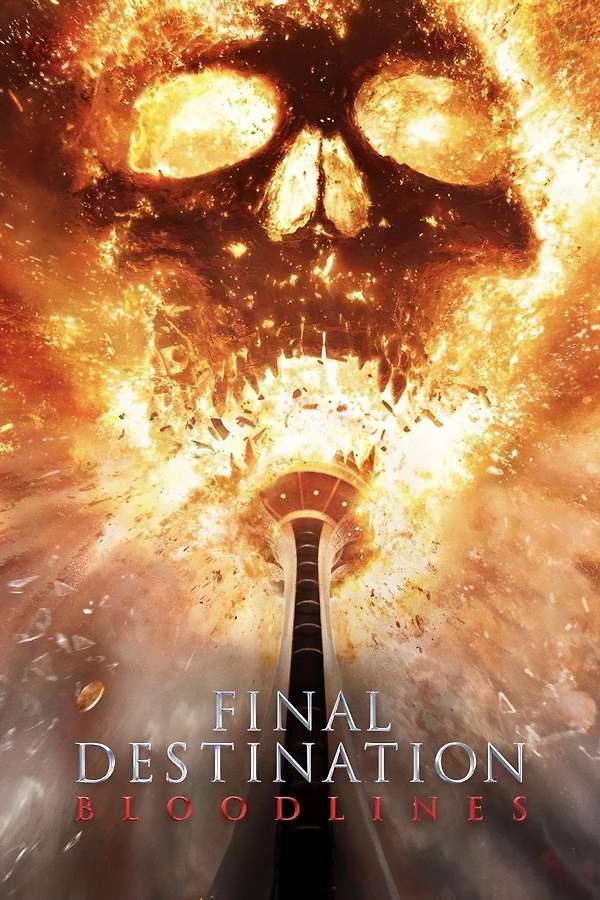
A total blast. The film's focus on a family with sincerely rendered emotional stakes really ratchets up the franchise's underlying tension between the audience's ghoulish bloodlust and the audience's natural empathy; whereas previous entries in the series have relied on making the characters as irritating as possible in order to create a catharsis from their elaborate deaths (and there's a little of that here, e.g. the kid in the opening sequence), a lot of the people in this movie have a basic likability that lends an interesting tonal texture to a film that at its core doesn't amount to much more than a sleazy amusement park ride. And what ride! The opening Skyview restaurant scene is one of the great opening disasters in the franchise, and the MRI scene is an instant tragicomic classic. Even if the rest aren't as good as those, they're all solid and aware enough of the franchise's tropes to deploy some clever bits of misdirection within the Rube Goldberg machinations. I don't the other movies having quite as much face trauma in the other movies, but hoo boy, there sure are a lot of ways to mess up a person's face, huh?
]]>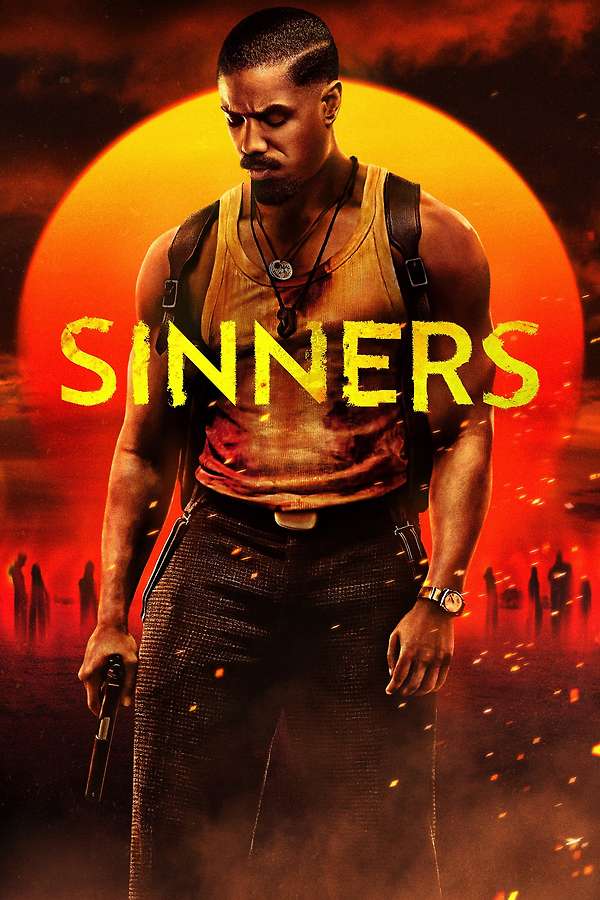
I put off reviewing this for so long that every thought I've had about it has already been said in reviews I've read, so just going to do a quick driveby here. Tons of fun, which is what we should expect from a big summer-kickoff film, and on top of that, there are the musical sequences, esp. that musical sequence, which is way above and beyond what we had any reason to expect. Cinema is, at its core, about the wonder of being presented with images we've never seen before, and while nobody would accuse this film of being at the bleeding aesthetic vanguard, I have now seen Hailee Steinfeld spit in Michael B. Jordan's mouth, and that's not nothing.
]]>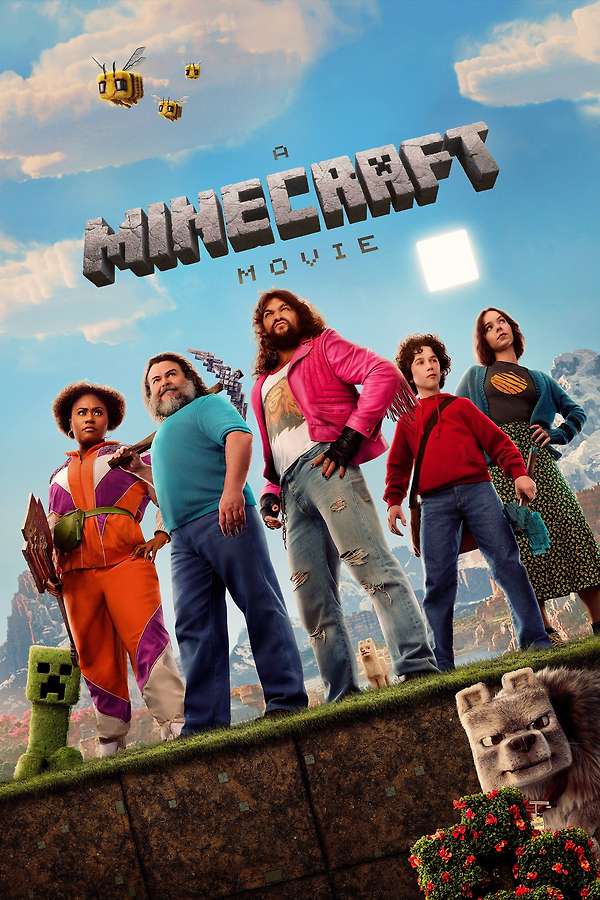
I was surprised about the amount of red meat for the Jared Hess auteurists, particularly in the opening act's pileup of Napoleon Dynamite echoes (tater tots appear way more prominently than I was prepared for). The first bit of the film before they go into Minecraft world isn't, like, top-tier cinema, and it shares the rest of the film's sweaty eagerness to be as meme-bating as possible, particularly in the dialogue (which is often deeply cringe). But there's definitely a texture to the early goings that feels like it sprung from the mind of a human being with a genuine perspective on the world rather than the bland committee work that often animates these sorts of films. The lightly surreal way the town is sketched even come across like a diluted combination of Bottoms and Brazil filtered through the Hess preoccupations. For a while, I found myself charmed. "Wait, am I going to mildly enjoy the Minecraft movie?" I found myself thinking early on, but then they go into the mine, and the movie instantly becomes exactly the film that was d to me constantly for what feels like the last two years straight, and the movie as d always looked very dull to me. Turns out, it was. I'm curious if having more familiarity with the game (I haven't played it except for a few hours c. 2012) would have made the movie more or less interesting to me--like, is this full of inside-baseball Minecraft arcana that deepens the viewing experience for fans, or is it an Illumination-Super-Mario-movie thing where it's remixing the most iconic elements of the game into a generic family film package that only engages with the source material in the most superficial, obvious ways? I'm banking on the latter, but given the box office, perhaps, like Elvis, millions of fans can't be wrong. Also, speaking of The Super Mario Bros. Movie, it's been very depressing to feel myself slowly become grumpy about Jack Black, a figure whose work used to give me quite a bit of joy. I don't want to be cynical about Jack Black, I really don't, but I often found him annoying here! Truly, time robs us of everything we hold dear.
]]>
Plays around with some really putrid misogynist ideas before ultimately shrugging and giving a very '90s "eh, everyone is wild, not just women," which is barely more than a lateral move, in of useful politics. But who's coming to this for gender theory (besides Karina Longworth, who dedicates a very good You Must This episode to the film)? The whole thing is practically a carnival ride and has so many rug pulls that it practically becomes a Scary Door-esque parody of twist endings; the goofy charm is hard to resist by the end, and while I'm not quite ready to put this on the level of a Verhoevenian satire, there's something to be said for the duality between its shameless sleaze and its constant impulse to twist that sleaze into something absurd. On a separate note entirely, I was as disappointed to find that the music wasn't composed by that George Clinton as I was delighted to find that this contains a ing performance by that Bill Murray.
]]>
Feels like the low-budget '50s biker gang version of Once Upon a Time in the West: macho archetypes transformed into art installations by the cavernous gaps in dialogue set against empty landscapes. I found it hypnotic, even if neither baby Kathryn Bigelow nor baby Willem Dafoe seem fully arrived.
]]>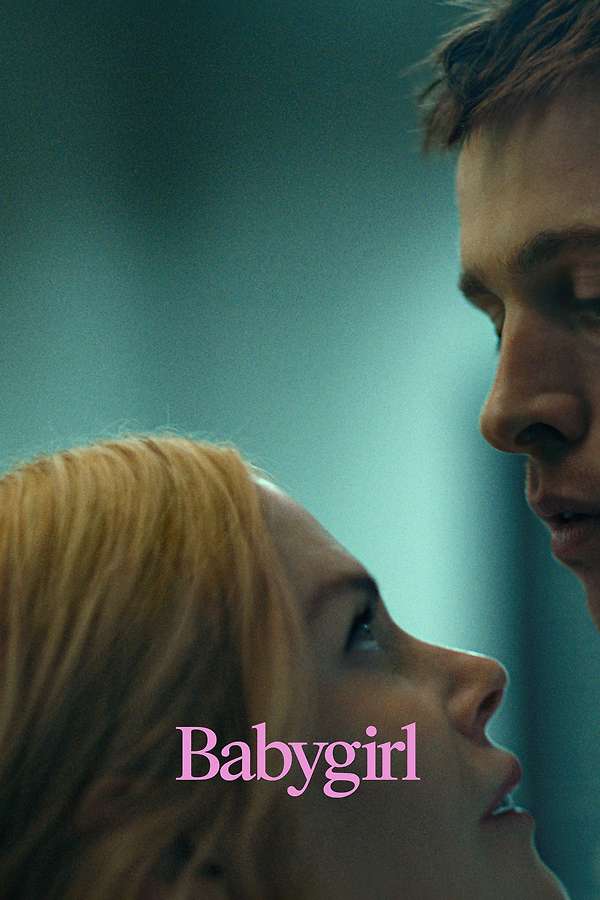
I kinda wish this committed to being either entirely trash or entirely a more rigorous analysis of sex. Instead, we've got a movie with a setup and half-sketched approach to characters that evokes the shamelessness of a '90s erotic thriller, but then the film compulsively throws out dialogue referencing ideas of consent and fantasy and workplace power dynamics in a way that suggests an interest in interrogating those things within its plot more completely and less reactionarily than, like, an Adrian Lyne film might. Both sides of the dichotomy feel more muddled than they should. It's all oddly listless by the end and entirely too mealy-mouthed--maybe that's just an attempt at ambiguity, but if so, it doesn't feel like there's enough substance to these characters for there to be much weight to that ambiguity. Every character here besides Kidman's is a total cypher outside of their obvious archetypal seeds, and even Kidman has loose ends that make her hard to dig more deeply into outside of the fairly basic "she's a boss who wants to be a sub" setup. She was raised in a commune? She's spearheading more automation in shipping logistics? I'm probably missing something, but to me, these seem less like meaningfully obscured details and more like random decorations pinned to a character who might otherwise seem too plain. I liked large portions of this, especially the sex scenes, which lean in to the more awkward, fumbling aspects of sex in an irable way I don't see often enough in movies. In general, Reijn's direction is excellent and consistently engaging, particularly in the showstopping club sequence (which feels in conversation with the cinematography [i.e. one of the best parts] of her debut, Bodies Bodies Bodies). Great music, too, both in the score and in the needle-drop selections. I just wish I had gotten more of a compelling whole out of the film instead of just some solid pieces.
]]>
The performances here improve upon the studio album material to a substantial degree--wild considering the already legendary quality of the original Sign O' the Times record. Of course, like its obvious precedent, Stop Making Sense (which also improves considerably over an already very good studio album), the point isn't just the music but the incredible band chemistry catalyzed by the jaw-dropping charisma of the front man. Whatever superlative you could award Prince with is on display here, and it's breathtaking to witness. Going to a Prince concert in the 1980s must have been an out-of-body experience. Speaking of which, this film feels notable for how dreamy it is. Concert films often try to emphasis the tactility of a show, but this one feels otherworldly. Part of this is the editing: a lot of concert films are slashed to ribbons by overactive editors trying to capture every angle of a performance, but Sign O' the Times cranks this tendency to such a degree that it becomes almost an abstraction of a concert, an effect intensified by the casual lack of interest in continuity--in the space of a cut, Prince teleports around the stage, one time even somehow becoming the drummer while Sheila E. raps into the mic. It's odd, even distancing at times. I also found out that apparently most of the footage we see in this film isn't from the concerts the audio came from; instead, it's an elaborate recreation at Paisley Park lip-synced to the concert recordings. I don't know how common this practice is in creating concert films, but once you know that about the production of this film, it's hard not to see a subtle "Club Silencio from Mulholland Drive" quality lurking in the movie. All of these things might be considered technical flaws in other hands, but somehow, Prince makes it all part of the genius of the experience. Prince the Filmmaker is usually idiosyncratic to a fault, but it's hard to argue with the results here.
]]>
Very beautiful, very dense. I am very impressed by how thoroughly this feels like the culmination of so much of what Wong Kar-wai had done up to that point (and not just in the ways that this directly carries on the plots of a couple movies): the literary doubling, the narrative fragmentation, the urban ennui. None of these are groundbreaking insights on my part, and I'll probably need to watch it again (and not review it 11 days after watching it) to have more sophisticated thoughts. But this was good. The robot stuff is just barely on the right side of silly for me now, so maybe that's something else that will change with a rewatch.
]]>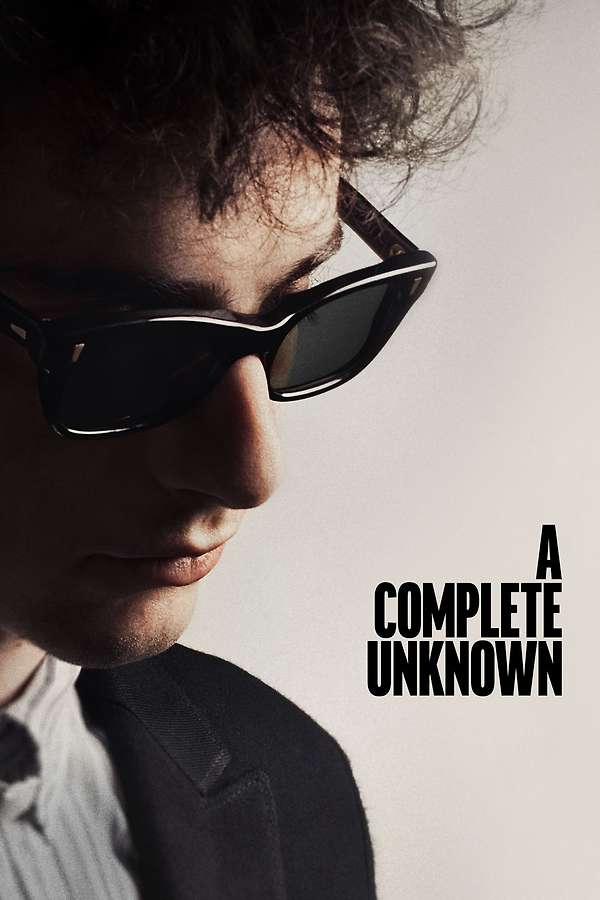
I went in as cynical as anyone should be of a musician biopic, so I'm very surprised this won me over. The movie is lame in the ways that biopics tend to be, with lots of contrived historical syncronicities, plenty of broad imitations of famous people, and several scenes with the camera zooming in on people's awestruck faces as Bob Dylan starts plucking a famous song for the first time; also, once you start realizing how many times people in these types of movies address each other by both their first and last names, you can't not notice it. But beyond all that, I was struck by how ambivalent the movie was about its subject, and as a whole, this is a lot smarter about Dylan than I was anticipating. Presenting Dylan as a hollow opportunist who happened to write earth-shatteringly good songs (a correct take on Dylan at this stage of his career, imo) is one thing; structuring your entire Dylan biopic from the perspective of the folkies is another thing entirely, which makes the movie (outside of the aforementioned biopic cliches) in line with something like Amadeus in the sense that it's more about the experience of watching the talent of the century ruin your life than it is about the talent itself, though unlike Amadeus, the endpoint isn't murderous (though I would have loved to see a revisionist take where Joan Baez tries to kill Dylan in the motorcycle crash). In fact, the film's stance on the folk musicians is way more generous than Dylan-centric s tend to be, and unless I've missed some sea change in popular rock history, it feels wildly against consensus to present so sympathetically the folk crowd's sense of betrayal from Dylan going electric. There's an intriguing tension in the movie where the electric Dylan songs very clearly rock and are the future of music, but in every other respect, Pete Seeger and the rest are entirely in the right; what is it like for someone with such strong principles to feel the cultural center of gravity shift away from an explicit sense of justice and equality toward something much less disciplined and much more chaotic? What does it do to a person to be the conduit of historical forces bending inexorably away from the values that made you? I say this as someone who on any given day since I was 19 years old would place Bringing It All Back Home and/or Highway 61 Revisited on the Mount Rushmore of albums, but there's something to this movie not often captured in the Dylan mythology, wherein his electric period is depicted as a tragic inevitability rather than an unambiguous pinnacle. I dunno, like I said, there are still a lot of biopicisms keeping the film's overall quality at a fairly low ceiling of merely "good," but the fact that I spent a lot of the runtime actively engaged with the film's themes says something good about the engine under the hood. Impressive hair work on Edward Norton, too.
]]>
I had seen bits and pieces of this way back, and I guess I assumed there would be more to it than the peeks I'd gotten. Nope. Some of the VHS tracking stuff is aesthetically interesting, and I thought seeing a real baby in the flesh at the end was oddly moving after seeing that baby doll for the rest of the movie, but that's about it for me. For the most part, this feels like a group of friends goofing off in front of the camera, but repackaged in a way meant to seem edgy. "Pointless provocation" is an accusation I've come to regret when I've lobbed it in the past, so I'll hedge my bets and not officially say that, but just letting y'all know, it's on my mind.
]]>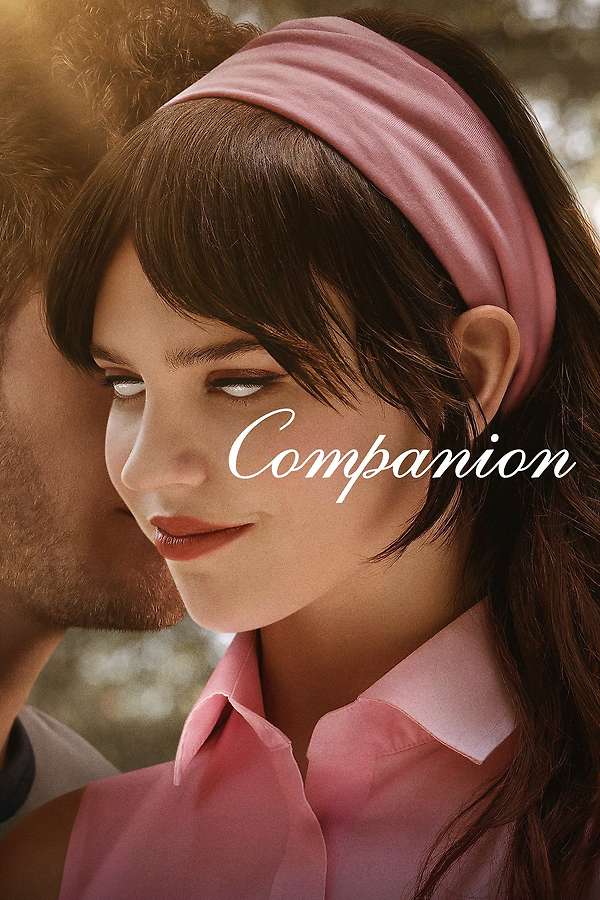
Get Out mixed with The Stepford Wives, and literally zero surprises present in this movie once you're aware of those antecedents. Predictability isn't necessarily a bad thing, but in lieu of surprises, you've gotta do something to hold my attention, and outside of a game (if a bit broadly acted) cast, there's really just not much here. Blandly competent, and not much else--though perhaps In This Day And Age, I shouldn't discredit the value of presenting Feminism 101 concepts like body autonomy inside a package that appeals to a wide audience.
]]>
Perfectly pleasant and irably naturalistic and loose for a rom-com. Obviously doesn't hold a candle to the acid bath of Chilly Scenes of Winter, the other Joan Micklin Silver film I've seen, but it's not trying to do that; mostly, this is situating familiar tropes within a very lived-in approach to depicting a particular regional and ethnic milieu, which I think is lovely. On another note, though: the pickle man reaches into his pickle barrels with his bare hands to get customers their pickles. Is this normal in the pickle world? They don't use tongs or gloves or anything? I probably still would have taken the pickles; they looked delicious.
]]>
Took me a looong time to get on this movie's wavelength, and honestly I was bored for a while, so the rating here may be more retroactive than a lot of my other reviews. It's just so dry--the film is as Coen-esque as everyone else on here is saying, but with like one fifth of the more overt goofiness and absurdity of Joel and Ethan's output. Once it clicked, though, it got pretty good, and I bet this improves if I ever rewatch it. Martin Priest has one of those faces that the '70s American New Wave was created to capture. I can't believe he's barely been in anything else.
]]>
I don't think there's a better scene in 21st century cinema than the "Club Silencio" one here. I had forgotten just how devastating this movie is. I had also forgotten about Billy Ray Cyrus being in it.
Anyway, we got to talk about one of the greats by one of the greats on the Cinematary podcast; here's the link if you're interested!
]]>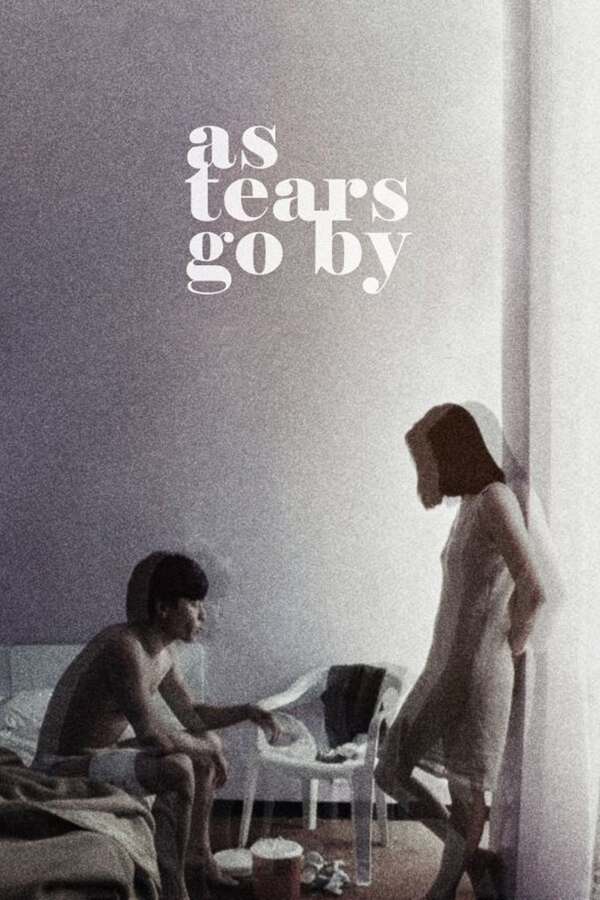
I really didn't care for this at all, and the only reason it's not a lower rating is the "Take My Breath Away" sequence, which is truly lovely both in an aesthetic sense and also as an artifact of an artist's journey to find his voice, since it's pretty much the only part of this that feels like what we would call a Wong Kar-wai film. I knew all this going in, but I wasn't prepared for how little I'd be interested in the Hong Kong gangster stuff.
]]>
As is legally mandated, I spent a good deal of my reflection on this movie thinking back to my own days with baseball: the years during middle school where I was consistently maybe the third-worst player on a local recreational team and therefore played outfield, except for that one season where I briefly became a competent first baseman. More important to me in my baseball phase were the statistics: I read box scores in the paper every day, I obsessively collected baseball cards so I could read the tables of stats on the backs of the cards, I created imaginary players with their own tables of stats, etc. I was never that enthusiastic about playing the sport, but the numbers mattered to me a lot, which is why the whole Barry Bonds/Mark McGwire/etc. juicing scandal shattered my relationship with baseball, and I've never looked back--if those stats couldn't be trusted, then what was the point? Baseball has always been the curious intersection of numbers and numerology, and more so than the cheating aspect, the transformation of the sport into a pursuit of purely optimized physical bulk rather than the (probably projected) mystical tremors of the raw stats sapped the whole enterprise of romance for me. In that light, then, I guess the character who should matter most to me in Eephus is the aging baseball romantic who keeps meticulous scorecards of every game, and he's great, but honestly, the most affecting part of the movie for me is when the game runs so long that the umpire has left, the sun has set, and reliable stat-tracking--much less calling balls and strikes--has become impossible in the twilight. All semblance of competition as a motivating factor has faded away, and all that remains is the abstract shape of the sport in a kind of pure state that is entirely divorced from individual skill or winning and losing. For me, it made me realize that my disillusionment with baseball was also an early manifestation of my distaste for competition as an animating force, and when I think about baseball now, any affection I have for it is tied exclusively to the moments between moments in the game and how it is the only sport I can think of with that kind of meditative, time-dilating appeal that runs almost perpendicular to its ostensible nature as a competitive activity. Eephus captures this perfectly, and, relevant to my now decades-long cynicism about sports, does so with an appealing lack of sentimentality; it's not even clear how many of these guys are here playing "for the love of the game" so much as it is a manifestation of the simmering tedium of their hidebound lives. There's a rich ambiguity within the melancholic vein that runs through the film that gives the movie surprising depth when it comes to these characters, and their reasons for playing feel as slippery and multifaceted as a Tennessee Williams play, especially once the competitive element is stripped from their activity. I think that oftentimes, the win/lose state of sports is a construct that obscures what is actually meaningful about sports, which is maybe part of why historically they have been so appealing to traditional masculinity--so much of masculine behavioral scripts involve an emphasis of power and domination as a surrogate for what we actually want/need, and sports are kind of the perfect avenue for that, where you can tie a whole bunch of significance to who is better than whom when what's actually important is the camaraderie, the sense of belonging, the practice of working communally under a set of shared values, etc. I dunno, maybe I'm coming full-circle into romanticizing this whole enterprise that ultimately just boils down to a bunch of dudes frittering away an afternoon so they don't have to spend it with their families. Whatever the case, the way that Eephus allows the romanticism and cynicism to coexist in a kind of uncollapsed wave function has made rolling it around in my mind deeply satisfying. Good movie.
]]>
A breathtakingly beautiful movie, and perhaps Godard's most playful (at least, of what I've seen), perfectly balancing silly aesthetic whimsy with the navel-gazing philosophizing. I thought this might even end up being my favorite Godard film, and maybe it is (I need to rewatch Weekend), but then there's the really bad yellowface jumpscare in the middle of this, and even putting that aside, the back thirty feels like the film is running out of charge--not coincidentally, this is also when the typical Godardian self-impressed aloofness curdles after having been sweetened by its interplay with the Bonnie-and-Clyde hijinks of the first hour. But those are comparatively minor complaints. In of early Godard's interest in intersecting genre deconstruction with formal play and political tête-à-tête, this is one of the best.
]]>
Spent way too much of the movie interested in its use of Frank Zappa music and wondering if I was an idiot for expecting the titular song by The Turtles to play. So of course that last scene knocked me out. Anyway, music aside, this is lovely, but I probably need a rewatch to fully appreciate what's going on here. Definitely doesn't feel as immediate as the other Wong Kar-wai films I've seen.
]]>
I flipped on this very pleasant Soviety animated feature at 9pm, which is probably the perfect time to watch this kind of dreamy, mildly psychedelic fluff. It's got fun creature designs and an incredible electronic score, and the weird pacing that makes the movie feel like it's in fast-forward is a big perk and curiously ed by the smooth animation. Speaking of animation, the film has a lackadaisical approach to scale and z-axis movement that I suppose could be credibly accused of being technically sloppy, but I found charming and slightly mind-melting--not "brain oozing out of my ears" stuff, but getting some thinning of the viscosity. Your mileage may vary.
]]>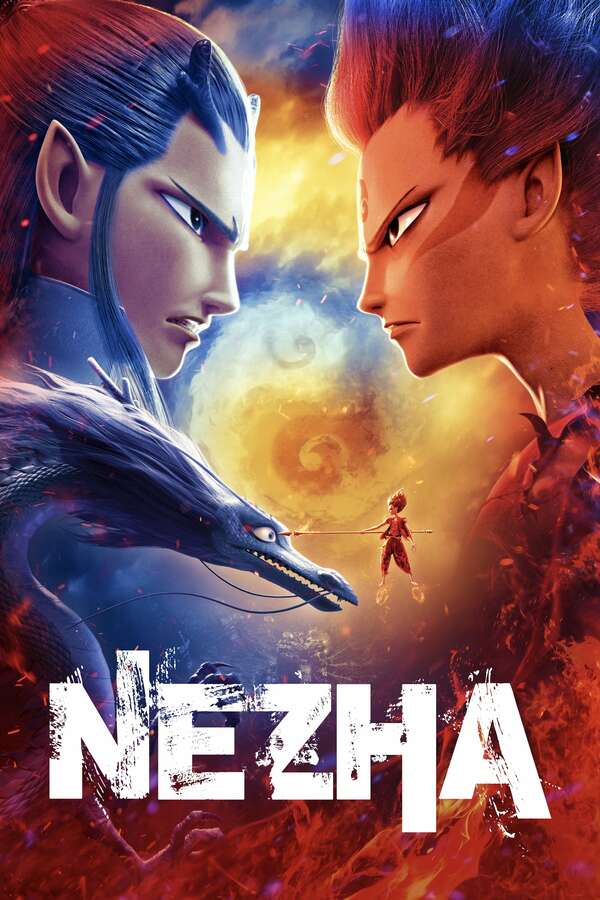
A thoroughly uneven movie full of undercooked characters whizzing past overcranked visuals. Narratively, the movie is at its best when it's going full mythic folktale, but even then, the writing is suffused with an insufferably quippy, lowest-common-denominator sense of humor (stop me if you've heard this one before: a fat man falls down). In spite of all of that, though, I've gotta hand it to the action sequences, which have an inventiveness to their go-for-broke kineticism that makes me feel more charitably toward the rest of the movie than I might otherwise. Usually when a movie like this is too long, it's because the action sequences are interminable, but honestly, this would be a much better movie if it were only the action sequences.
]]>
The owner of a department store goes undercover among his employees to foil a unionization drive but accidentally ends up aiding the organizing efforts. Tons of fun even besides the delightful incongruity of its creation (a few of the most conservative people in the industry being involved in creating a movie this loudly anti-rich and pro-union). The sincerity of the fairly grounded depiction of working-class life is cut surprisingly well by the dramatic irony of the workers continually mistaking the rich guy in disguise for a simpleton whose apparent vulnerability reinforces the necessity of a union's protection. Nearly the whole movie pulls off a terrific balance between being very funny and also meaningfully dramatic, and even though it flubs the very last scene, that's only after a hilarious penultimate scene that would have been the perfect note to end on (and might actually have been the ending if this movie had been made by new wave film school brats in the '70s). Quite good. It's weird that I found out about this movie because I was reading about the 1970s porno-chic film of nearly the same title.
]]>
A puzzling movie that feels '80s-American-indie adjacent (Jim Jarmusch/Hal Hartley both feel like touchstones, though citing the latter might be an anachronism), only not nearly as disciplined or patient as the most notable films in that legacy, instead flitting from idea to idea without a lot of development or commitment. Still, parts of this are hilarious, and even when it's not, the movie mostly gets by on the considerable charms of its cast, which is terrific top-to-bottom but especially in the bespoke onscreen pairing of David Bowie and Rosanna Arquette. Incredible chemistry between these two--not exactly romantic chemistry (the romantic plot is one of the weaker aspects of the film), but chemistry in the sense that the film comes alive when these two are in a scene together. Pure star power.
Also, re: the title--I love that the unexplained nature of the title puts it in the proud tradition of hazy pop-culture pasta incidents: The Noodle Incident in Calvin and Hobbes, The Spaghetti Incident from Guns N' Roses... are there others? Love this tradition.
]]>
This movie has way more access to Burroughs than I ever thought I'd see. Maybe too much access--for as much as this brings up some of the most obviously troubling elements of Burroughs (William Tell, of course) and the Beat writers in general, it's still a movie that leans toward a print-the-legend approach that flatters Burroughs's version of himself and indulges in some mythmaking. It's a little hard to know how sincere Burroughs himself is being from moment to moment, but certainly some places are undeniably vulnerable, like watching he and his brother look through old family photos or the visit with his old neighbor. Mostly, my big takeaway from this is that I need to read the Nova trilogy soon, because it sounds incredible. Junky and Queer were a bit too grounded for my tastes after Naked Lunch, so it sounds like Nova is where it's at. Apropos of nothing, there's a jazz piece used in an early montage in the film, and I cannot for the life of me find out what it is, but it's cool and hell, and I need to know. Please help me!
]]>
I'm trying to fill in my Wong Kar-Wai blind spots, and I'm starting with this. I was not prepared for such an unbelievably unlikable male protagonist--this feels like a Scorsese movie or something in that regard, in that it's a study of a horrible dude and the horrible ways he treats women, plus a complicated relationship with his mother. Whereas Chungking Express (the movie of Wong's I've rewatched most recently) posits loneliness as this cosmically inevitable, ambient force affecting everyone, this movie is much more focused on locating the source of that loneliness in human cruelty and specifically the cruelty of one dude. Anyway, great movie, and even given the cruelty, there's still plenty of room for that trademark WKW urban ennui. Maggie Cheung is incredible here (duh). The wildest part of this movie, though, is that non-sequitur ending with Tony Leung. A completely beguiling mystery to end a completely beguiling movie on.
]]>
Incredibly dull as a noir, and the obvious right-wing claptrap of the film is only barely watchable for ironic laughs. This movie presents a weird kind of horseshoe theory in which you kinda feel bad for the guy pretending to be a communist because all the non-communist Americans are so awful to him."Did you know that communism is so evil that in America, anti-communists don't let communists teach little kids how to bunt in baseball?" is such an interesting direction to pull the dramatic tension of your McCarthyist movie, and I wish there'd been a lot more of that kind of absurdity and a lot less of the horribly racist and antisemitic stuff like "Did you know that communists love saying slurs and framing the Jewish community for violent strikes?" Even putting aside that stuff, it's kind of hard to laugh at any of this, especially when you can just substitute "communist" with "student activist" or "immigrant" and get a pretty good approximation of the material substance of the platforms of both major political parties in the United States right now, at least with regards to their stances toward whatever exists of a left wing in this wretched country.
]]>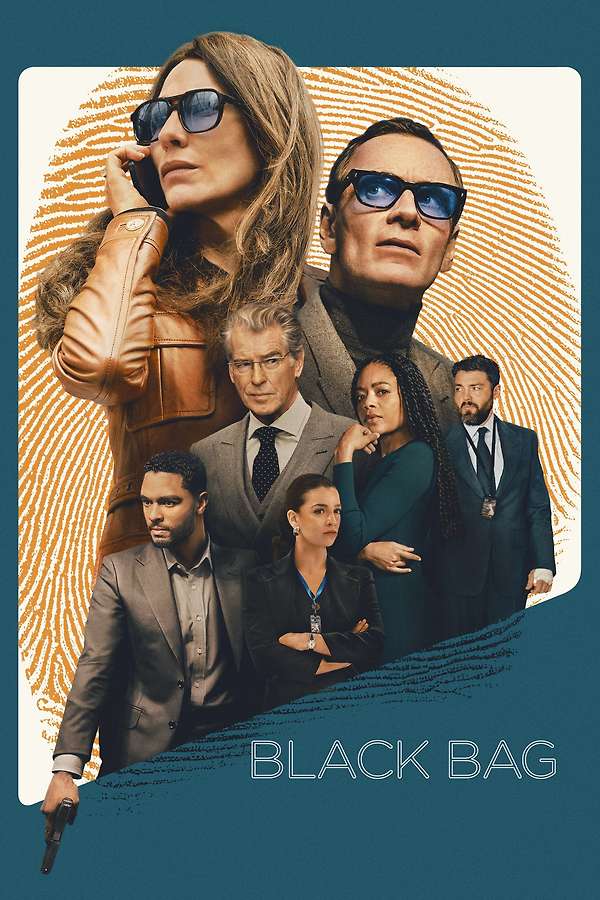
Steven Soderbergh bringing a cool formal mastery, David Koepp bringing a twisty, propulsive script, David Holmes bringing a mesmerizing score, Cate Blanchett and Michael Fassbinder bringing a palpable screen chemistry, the runtime bringing a brisk 94 minutes... I mean, what else do I have to say? Run, don't walk, to your local cinema and watch this as soon as possible! It's not perfect. I do have some questions about the movie's relationship to intelligence agencies, which waffles wildly between "these are cool people with impressive tools" and "these are sociopaths with questionable ends to even more questionable means" without ever resolving that dissonance. I also feel like everything connected to Pierce Brosnan's character is played really broadly in seeming service to a tight runtime and nothing else. But these are minor quibbles from a movie that is otherwise engaging, smart, and very fun.
]]>
Going in, I didn't know what this movie was about, and I'm a little sad that the Blu-ray cover gave away one of the better visual gags. Still, what a picture! Very silly, very mean, very misogynist, very lumpily structured, but also, it's Zemeckis in full carnival-ride mode, so of course it's a lot of fun. Every single shot, every camera movement, every shadow, every piece of lighting--all of it is seemingly built for maximum visual pizazz, which is how most movies should be made, imo. All three leads are great, too, though in particular, I don't think I knew Streep or Willis had these performances in them. Maybe the most I've ever liked a Meryl Streep performance, and I would love to see her do more comedic work at this tenor.
]]>
An absolutely brutal depiction of sweaty male romantic desperation/obsession/entitlement. Annie Hall by way of The Heartbreak Kid, though a lot more unpleasant and less funny than either of those connections might indicate. Also deeply sad--John Heard's character's romantic egotism kind of dominates, but whenever that drops away and we get glimpses of his mother's mental illness or Mary Beth Hurt's character's utter panic at bourgeois life, there's some real staring-into-the-abyss pain present in the film, and the fact that Heard simply cannot see that pain is perhaps as much of an indictment of his character as the empty(?) threats of sexy violence he makes. Chilly, chilling. On an entirely separate (and maybe incongruous note), I love the scenery and little '70s domestic details here. A great document of the texture of middle-class life at the tail end of that decade.
]]>
An extremely post-1968 movie about the failure of a movement and the collapse of an empire. Opens with a surprisingly gory battle that feels like it may have been the inspiration for the black knight scene from Monty Python and the Holy Grail. With all of the armor and horses, this is the most expensive-looking Bresson movie I've seen, but maybe some of the bizarre stylistic choices (like filming 75% of a jousting tournament in an extreme close-up of a lance) betray an attempt to hide some of the budget shortcomings; apparently after winning the FIPRESCI Prize at Cannes for this movie, Bresson turned down the prize and said, "I don't want prestige, I want money and only the Palme d'Or attracts money." I guess it's fitting that his final film ended up being L'Argent, though like a lot of these despairing late-Bresson features, this movie could have been a thematically appropriate end point for his career.
]]>
Hilarious, of course. Not sure if there's much left to say about this movie, but we on the Cinematary podcast sure tried! Listen here if you want!
]]>
In some respects, perhaps the boldest and scariest found-footage horror film ever made. I think this is a much more substantive exploration of the Columbine world than Gus Van Sant's Elephant (and maybe a more stylistically significant one, too, though I'm less convinced of that), and in a lot of ways, the very complex and thorny way this depicts turn-of-the-millennium white male suburban rot of the soul feels like a dark companion to Conner O'Malley's RAP WORLD of all things, which I can definitely get behind. But on the other hand... there's a scene that teaches you step-by-step how to make a pipe bomb without getting noticed. Not sure what to do with that. Nor am I sure what to do with the final sequence, which is composed of security-cam footage of the school shooting--horrifying, of course, but in a way that has the uncomfortable feeling of a money shot after a whole movie of buildup, and I'm really unsure of what the purpose of that sequence is other than to make me want to throw up. Certainly the most unflinching and honest cinematic engagement with the school shooting phenomenon that I've ever seen, but at a point, I have to wonder about the utility of putting something so evil out into the world. I could probably be pretty easily convinced on a rewatch that this is a masterpiece, but good luck trying to get me to watch this again.
]]>
I had an Arthurian legend phase around middle school, and I read a bunch of the usual suspects: T. H. White's The Once and Future King, Mary Stewart's The Crystal Cave, Susan Cooper's The Dark Is Rising books--plus a handful of lushly illustrated books that I now recognize as probably adapting Malory for middle-grade readers. Anyway, the long and short of it is that this movie rocketed me right back to being like eleven years old reading that stuff, and I spent the whole film in the thrall of the imagery here and missing the era of my life where I read almost exclusively fantasy literature. This movie does a fantastic job of evoking the weird tension between idealistic Romance (in the chivalric sense) and primal sex/violence that has animated the Arthurian myth since at least Malory, while also staking out its own ground as maybe the most "this is a John Boorman high fantasy film made in the early '80s" work possible. The way that literally everything (including the stones in Castle Camelot) glistens like it's covered in morning dew caught in the sunlight is like nothing I've ever seen, and the interweaving of that effect with an honestly shocking amount of gnarly gore is not just visually rich but also thematically resonant in the way it juxtaposes a transcendent mythic history with a squalid tactility. Also, looking over Letterboxd, I'm maybe the only person on the planet who actually thinks it's a perk that the film sprints through the story beats of the Arthurian cycle; it's already a dreamy movie aesthetically, and boiling this story down to a barely coherent thread of archetypal episodes only accentuates that for me, as if these myths are so primordial that they just kind of emerge as indistinct shapes in the fog of the subconscious. Above all, though, the whole thing just rules on a gut level. I dunno, maybe my history with fantasy lit makes me a mark for this sort of thing, but every time "O Fortuna" played, I knew something sick as hell was about to happen, and the final few scenes set against the backdrop of a dying red sun made me want to yell and run around the room they were so cool.
]]>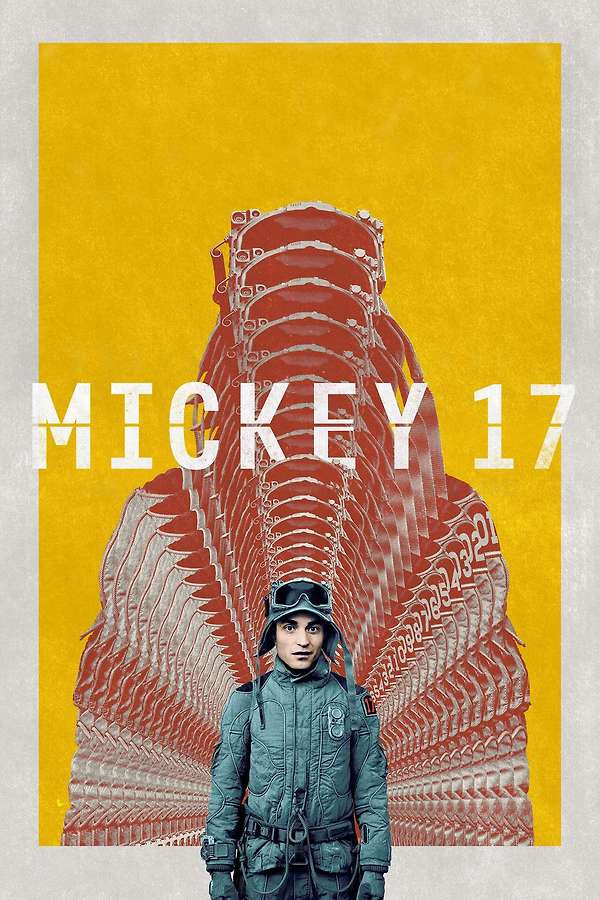
For the people who thought Okja was too messy, here comes this movie to ruin your day! Unbelievably messy, though not without its charms, of course, because it's Bong working with a great cast. For the most part, everything I like about this movie comes down to little bits or moments rather than the whole thing, which is deeply dysfunctional on a dramatic level. On the dysfunction: basically every subplot has either too much time spent on it (the creeper stuff) or too little (the loan shark stuff, the Pattinson-Ackie-Pattinson threesome potential), and the characters aren't developed enough to make sense (particularly egregious in the case of Anamaria Vartolomei)--these two problems together create a movie that has basically no hope of being "good" on a conventional metric, and I wonder how audiences who didn't come in with the context of Okja (or honestly, big parts of Snowpiercer or even The Host) will react to Bong Joon-ho in full goofball mode. To that point, though, virtually all the bits I like were comedic: Toni Collette's thing with sauces is hysterical, as is Mark Ruffalo's Donald Trump/Jim Bakker mash-up making sex illegal in space because it wastes calories, and Pattinson throughout has a great sense of physical comedy (at least when it's focused on him, it's not too hard to see this as a bizarro-world Chaplin film--particularly in the dinner scene with Ruffalo); plus, almost every member of the cast is doing some kind of funny voice, and I just can't deny the simple power of a funny voice. The movie has enough wacky, funny stuff like that to pile up into something I enjoyed overall, but it's hanging on a thread that I imagine will break for others. Whatever the case, I gotta hand it to Bong for making something so aggressively weird in a Hollywood environment that's so resistant to it these days, though I'm beginning to worry that the frequency that I and others resort to that line represents a kind of cinephile state of denial about the death spasms of the industry.
]]>
As with Bad Luck Banging, I'm gobsmacked that Romanians are apparently having the exact same arguments about the politics of education and history as Americans are. I guess I shouldn't be surprised; people are people, I suppose, and the desire to glom onto national pride is understandably (if frustratingly) more powerful than the need to acknowledge history. At any rate, a deeply stressful movie composed in large part of dialectical conversations between a director intent on making a WWII reenactment that is truthful about a Romanian pogrom and her government funding handler intent on sanding down the edges of that history. Better than almost any other media I've seen, this movie captures the relativistic pivot political discourse seems to take these days (most shamelessly from the right wing but also from the establishment in general), especially when it pertains to historical narratives, and the seeming futility of presenting factual evidence to the contrary of that relativism. I suppose the concerns about the construction of history as well as the levels of metafiction and playfulness with format make this a "postmodern" film, but I think that classification obscures how much this just feels like unvarnished documentary of Our Troubled Times. Wild that for most of my life, I heard postmodernism decried as academic wankery divorced from reality and the experiences of regular people, and it turns out that postmodern analysis is one of the only schools of thought that has a handle on what real life has become. As for the movie specifically, I dunno, the MAGA comparisons are probably facile and unbearably American, but as an American with no connection to Romania, that's the lens I've got.
Also, there's not really a good place elsewhere in the review to fit this in, so I'll just end by saying that against all odds, this is also very funny for a 2.5-hour political art film. Some terrific repartee braided into those lengthy dialectical disussions.
]]>Recommendations welcome!
- Demons
- The Legacy
- Bulbbul
- Pizza
- The Shiver of the Vampires
- The Erotic Rites of Frankenstein
- Don't Go in the Woods
- Anthropophagous
- Torso
- City of the Living Dead
...plus 296 more. View the full list on Letterboxd.
]]>No video game adaptations allowed.
]]>A screaming comes across the sky--it's me, screaming about Pynchon without having read much of his work.
- Out 1
- Southland Tales
- Under the Silver Lake
- Inherent Vice
- Kiss Me Deadly
- The Empty Man
- Impolex
- Repo Man
- The Ninth Configuration
- Wax, or The Discovery of Television Among the Bees
...plus 6 more. View the full list on Letterboxd.
]]>I mean, it's in the title. Ideally, someday I'll see them all.
- Cimarron
- The Great Ziegfeld
- The Life of Emile Zola
- Going My Way
- Hamlet
- Chariots of Fire
- Gandhi
- Out of Africa
- The Last Emperor
- The English Patient
...plus 1 more. View the full list on Letterboxd.
]]>Hoping to fill in some personal gaps. Combination of the 2012 and 2022 lists.
- Shoah
- Pather Panchali
- Ali: Fear Eats the Soul
- News from Home
- La Dolce Vita
- The Gleaners and I
- L'Avventura
- Journey to Italy
- Imitation of Life
- Sansho the Bailiff
...plus 14 more. View the full list on Letterboxd.
]]>Narrative movies (i.e. not concert films) based on / tying into / adapting records. Suggestions welcome.
- Tommy
- Entergalactic
- Pink Floyd: The Wall
- Quadrophenia
- Purple Rain
- A Hard Day's Night
- Lemonade
- Interstella 5555: The 5tory of the 5ecret 5tar 5ystem
- Yellow Submarine
- Dirty Computer
...plus 2 more. View the full list on Letterboxd.
]]>I mostly made this to shame myself into watching more American animation that isn't Disney.
Based on what I've seen, here are what I think are the best non-Disney, U.S.-made animated features of each year that a Disney animated feature was theatrically released. Excluding Pixar, because a rose by any other name. I've left off years where either no other animated feature was made in America (depressingly common) or where I've not seen any of them (in which case, suggestions welcome). I've also seen an embarrassingly small number of U.S. animated movies in some of these years, so again, suggestions welcome.
Years Where Damn Disney Movies Are the Only Animated Movies Made in the United States:
-1937 (Snow White and the Seven Dwarfs)
-1940 (Pinocchio, Fantasia)
-1942 (Bambi)
-1944 (Saludos Amigos)
-1946 (Make Mine Music)
-1947 (Fun and Fancy Free)
-1948 (Melody Time)
-1949 (The Adventures of Ichabod and Mr. Toad)
-1950 (Cinderella)
-1951 (Alice in Wonderland)
-1953 (Peter Pan)
-1955 (Lady and the Tramp)
-1961 (One Hundred and One Dalmatians)
-1963 (The Sword in the Stone)
Eligible Years I Haven't Seen Any Non-Disney American Animated Movies:
-1967 (The Jungle Book)
-2003 (Brother Bear)
- Mr. Bug Goes to Town
Dumbo
- 1001 Arabian Nights
Sleeping Beauty
- Shinbone Alley
The Aristocats
- Charlotte's Web
Robin Hood
- Wizards
The Many Adventures of Winnie the Pooh, The Rescuers
- American Pop
The Fox and the Hound
- The Adventures of Mark Twain
The Black Cauldron
- An American Tail
The Great Mouse Detective
- The Land Before Time
Oliver and Company
- All Dogs Go to Heaven
The Little Mermaid
...plus 28 more. View the full list on Letterboxd.
]]>It's in the title. Looking for suggestions. Interested in pretty much everything.
I just googled "best Chinese movies of all time" and put in the first ten movies I found that I hadn't seen, but that's just to get this list started.
- Infernal Affairs
- Ip Man
- Farewell My Concubine
- Spring in a Small Town
- Fist of Fury
- Yi Yi
- Street Angel
- Hero
- Shadow
- Still Life
...plus 7 more. View the full list on Letterboxd.
]]>I only recently woke up to the fact that the end of the decade is a scant few months away. Decades are arbitrary, as are lists, but I would like to be as well-viewed as possible when making my end-of-decade list.
So, what do I need to catch up with? Suggestions welcome, because I basically just put every 2010s movie on my Netflix DVD queue on this list so far.
- Prisoners
- 127 Hours
- Tickled
- Straight Outta Compton
- Chronicle
- The Keeping Room
- Cobain: Montage of Heck
- Amy
- Of Gods and Men
- Behind the Candelabra
...plus 27 more. View the full list on Letterboxd.
]]>There are two weird things about Cartoon Noir, the animated anthology DVD I got from Netflix:
1) Only one of the shorts in the anthology has anything even resembling film noir ("Tale About the Cat and the Moon"), so I'm not really sure why the collection is called what it is
2) Letterboxd doesn't have a listing for this movie, despite it being on imdb. I know it's more of a compilation of previously released shorts rather than a completely new work on its own, but that hasn't stopped Letterboxd before.
Regardless, since I can't review the film in the regular way, I'm just making this list, ranking them in order of how much I liked them. "Abductees" is far and away the best here, a real masterpiece and also one of the best pieces of UFO media I've ever seen, but all the films are great. Feature-length adult animation has always had a spotty track record, so shorts are where it's at. There should be more compilations like this: NOW That's What I Call Music!, only for experimental adult animation.
]]>When people the movie but think they're ing the book, esp. with movies that smooth over/excise complex or troubling or problematic elements from their source material. Inspired by the weird dissonance between The Crucible movie and play (and how most people tend only to the DDL movie version of John Proctor).
Suggestions welcome.
]]>Animated movies critiquing, parodying, or just giving the good ol' middle finger to Disney. This isn't just any movie that off-handedly references Disney--I'm talking about movies where that's a central part of the project. Suggestions welcome, because I love this lil subgenre.
]]>I did a mirror list of my blog's "Favorite Movies" post last year, so I guess I'll do the same this year.
Here's the link to the blog post, which has more than just this top 10:
withheyho.blogspot.com/2021/01/favorite-movies-of-2020.html
He doesn't usually watch the whole movie, but if he stops what he's doing to watch it for 10-20 minutes, it counts. 10-20 minutes is basically hours in baby time.
- Speed
- The Magic Flute
- Right on Track
- She Wore a Yellow Ribbon
- Guess Who's Coming to Dinner
- Western Stars
- Tarzan
- Black Mother
- Hellzapoppin'
- Charlotte's Web
...plus 8 more. View the full list on Letterboxd.
]]>With the exception of that Disney run I did a couple years ago, I don't usually cross-post my blog lists with my Letterboxd , but hey: new year, new me.
Anyway, here's the link to the blog post. It has a lot more commentary and honorable mentions and stuff:
]]>The 2010s saw the rise of the Christian film complex via the likes of Pure Flix, which, as far as I'm concerned, is Satan. A lot of the ascension of these types of movies was undergirded by the narrative that culture is secularizing and that Christianity and faith in general have no representation within media. This just proves that people weren't paying attention and/or had no interest in combating this narrative, and hopefully this list serves to undermine that.
Anyway, here are the movies I saw this past decade that resonated with my own faith. Some of these are explicitly religious movies; others have themes and ideas that have religious significance for me, either on a spiritual or a cultural level. I'm a Christian, so that is definitely the direction this list leans--I'd love to hear from people of other faiths and what movies from this decade stuck out to them.
Listed by release year. Apparently, I find outer space to be a deeply religious place.
- Cave of Forgotten Dreams
- Uncle Boonmee Who Can Recall His Past Lives
- Toy Story 3
- Into the Abyss
- The Tree of Life
- Take Shelter
- Martha Marcy May Marlene
- Red Hook Summer
- Leviathan
- Ida
...plus 27 more. View the full list on Letterboxd.
]]>Based on my blog project. You can read the list along with all the extra ranking stuff (songs, etc.) on the actual page here, and if you're interested in the project as a whole, you can go here.
- Pinocchio
- Fantasia
- Beauty and the Beast
- Sleeping Beauty
- The Emperor's New Groove
- The Many Adventures of Winnie the Pooh
- The Little Mermaid
- Lilo & Stitch
- Alice in Wonderland
- Dumbo
...plus 46 more. View the full list on Letterboxd.
]]>Posted on my blog with some small commentary (http://withheyho.blogspot.com/2016/05/favorite-movies-1-100.html). Alphabetized, not ranked. Also, Lord of the Rings and Star Wars count as one entry.
- Aguirre, the Wrath of God
- Airplane!
- Aladdin
- Alien
- Annie Hall
- The Apartment
- Babe
- Barton Fink
- Before Sunset
- Being John Malkovich
...plus 94 more. View the full list on Letterboxd.
]]>